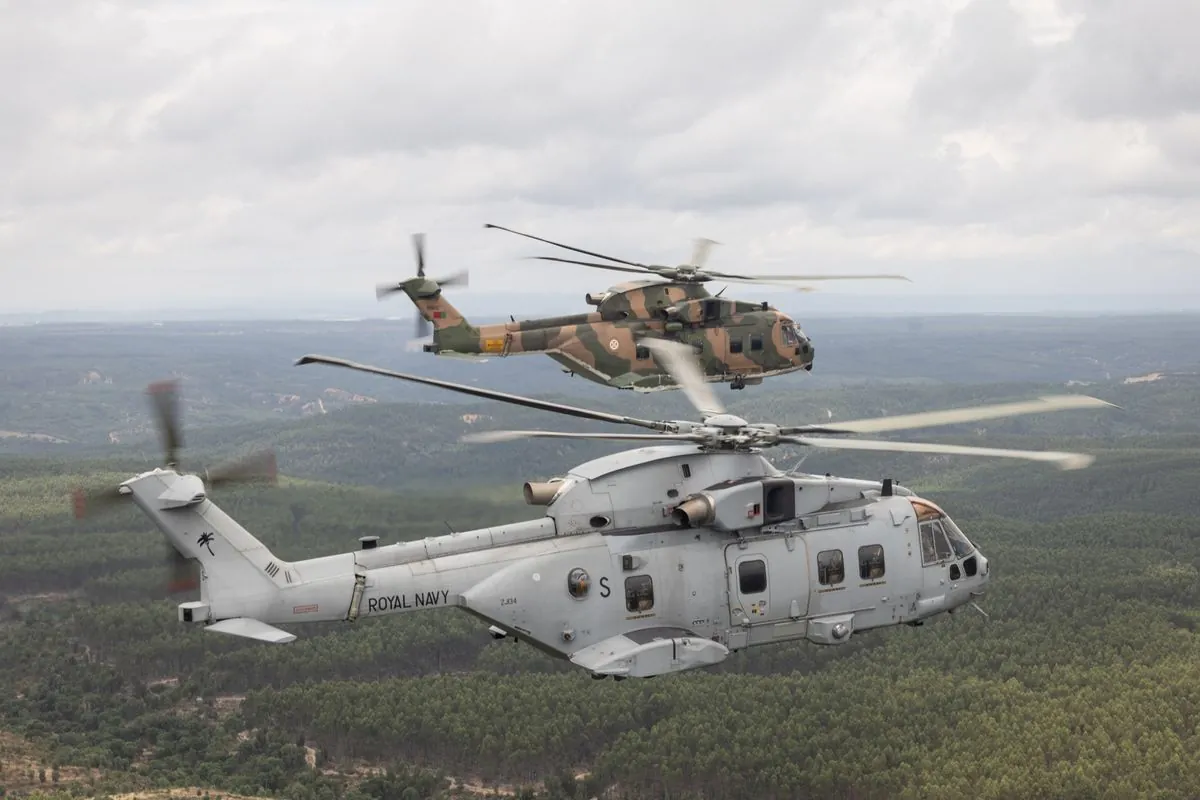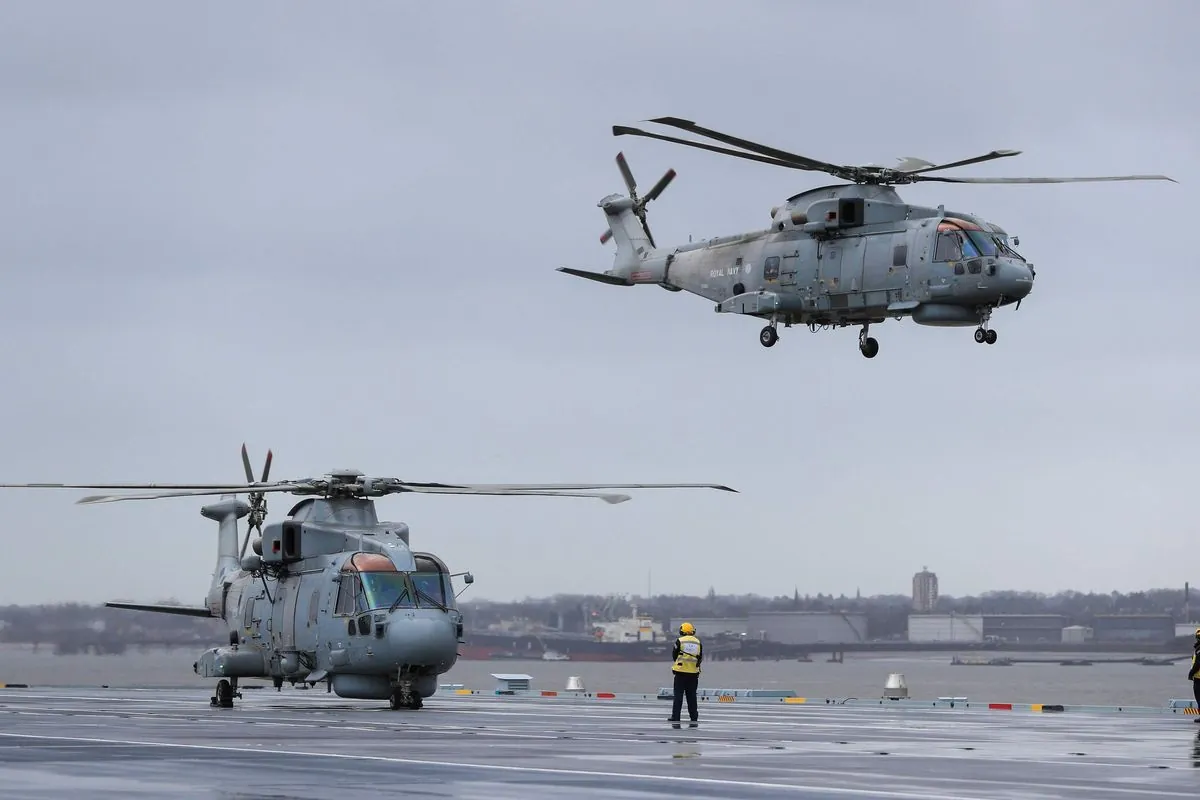Royal Navy Sailor Dies in Helicopter Crash During Night Training
A Royal Navy crew member perished when a Merlin MK4 helicopter crashed in the English Channel during a night exercise. Two others were rescued with minor injuries. An investigation is underway.

A tragic incident occurred on 2024-09-04 when a Royal Navy Merlin MK4 helicopter crashed into the English Channel during a nighttime training exercise. The accident resulted in the death of one crew member, while two others were rescued with minor injuries.
The helicopter was conducting exercises in conjunction with HMS Queen Elizabeth, one of the Royal Navy's two aircraft carriers, off England's southern coast. HMS Queen Elizabeth, commissioned in 2017, is the lead ship of her class and displaces 65,000 tonnes, stretching 280 meters in length.

The UK Ministry of Defense announced that a comprehensive investigation would be conducted to determine the cause of the crash. The Merlin MK4, a variant of the AgustaWestland AW101, is primarily used as an amphibious battlefield helicopter to deploy Royal Marine commandos. It can carry up to 24 troops or 45 personnel in emergency situations and has a maximum speed of 309 km/h.
Prime Minister Keir Starmer expressed his condolences, stating:
"I am deeply saddened by this loss. My thoughts are with the crew of the Queen Elizabeth, particularly those involved in the search and rescue operation."
Defense Secretary John Healey, while visiting a navy warship in Portsmouth, described the news as "dreadful" and extended his sympathies to the family, friends, and colleagues of the deceased sailor.
The English Channel, where the incident took place, is known as the world's busiest shipping area. Its narrowest point, the Strait of Dover, measures just 33.3 km wide. This high-traffic environment adds complexity to naval operations and underscores the importance of rigorous training exercises.
The Royal Navy, one of the oldest naval forces globally with roots tracing back to the 16th century, has been operating aircraft carriers since 1918. These vessels, considered capital ships, play a crucial role in power projection and maintaining the UK's maritime capabilities.
Night flying exercises, such as the one during which this incident occurred, are essential for maintaining operational readiness. The Royal Navy regularly conducts such training to ensure its personnel are prepared for various scenarios.
This tragic event highlights the risks associated with military training and operations, even in peacetime. As the investigation unfolds, it will likely provide valuable insights to prevent similar incidents in the future and further enhance safety protocols for naval aviation exercises.


































